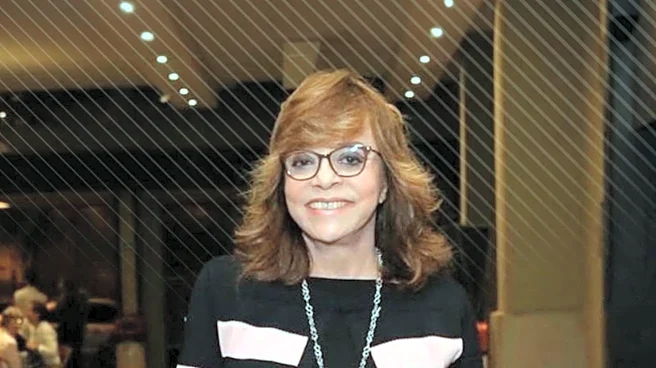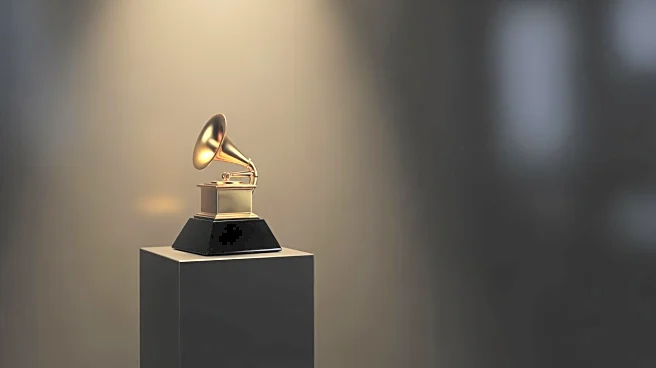What's Happening?
Maria Menounos, a well-known TV host and actress, has become a vocal advocate for early cancer detection following her own health challenges. Two years ago, Menounos was diagnosed with pancreatic cancer, which led to a significant surgery to remove parts
of her pancreas, spleen, lymph nodes, and a uterine fibroid. This diagnosis came after a previous health scare in 2017 when she had a benign brain tumor removed. Menounos emphasizes the importance of being proactive about health, sharing her experience of pushing for a full-body MRI that ultimately detected her cancer at Stage 2. Now cancer-free, she is using her platform to encourage others to take charge of their health, particularly through preventative screenings. Menounos has partnered with Exact Sciences, a diagnostic company that has developed Cancerguard, a blood test capable of screening for over 50 types of cancer. This test is aimed at individuals aged 50 to 84 who have not had cancer in the past three years.
Why It's Important?
The advocacy by Maria Menounos highlights a critical issue in healthcare: the importance of early detection in improving cancer survival rates. Her personal story underscores the potential life-saving impact of being vigilant about health symptoms and seeking comprehensive medical evaluations. The introduction of Cancerguard by Exact Sciences represents a significant advancement in cancer diagnostics, offering a non-invasive method to detect multiple cancer types early. This could lead to earlier interventions and better outcomes for patients, potentially reducing the burden on healthcare systems. Menounos' efforts to raise awareness can inspire individuals, especially women who often prioritize others over themselves, to focus on their health and seek necessary screenings.
What's Next?
As Menounos continues to promote health awareness, the partnership with Exact Sciences may lead to increased public interest in preventative health measures. Healthcare providers might see a rise in demand for comprehensive cancer screenings, prompting further innovation in diagnostic technologies. Additionally, Menounos' advocacy could influence public health policies to support broader access to such screenings, particularly for underserved populations. The success of Cancerguard could also encourage other companies to develop similar diagnostic tools, potentially transforming cancer detection and treatment strategies.
Beyond the Headlines
Menounos' story also touches on broader societal issues, such as the need for individuals to be their own health advocates in a complex medical system. Her experience highlights the importance of patient education and empowerment, encouraging people to question initial diagnoses and seek second opinions when necessary. This approach could lead to a cultural shift in how health is perceived and managed, emphasizing a holistic view that includes mental, emotional, and physical well-being. Menounos' journey also reflects the challenges women face in balancing personal health with societal expectations, advocating for a reevaluation of priorities to include self-care as a fundamental aspect of life.
















